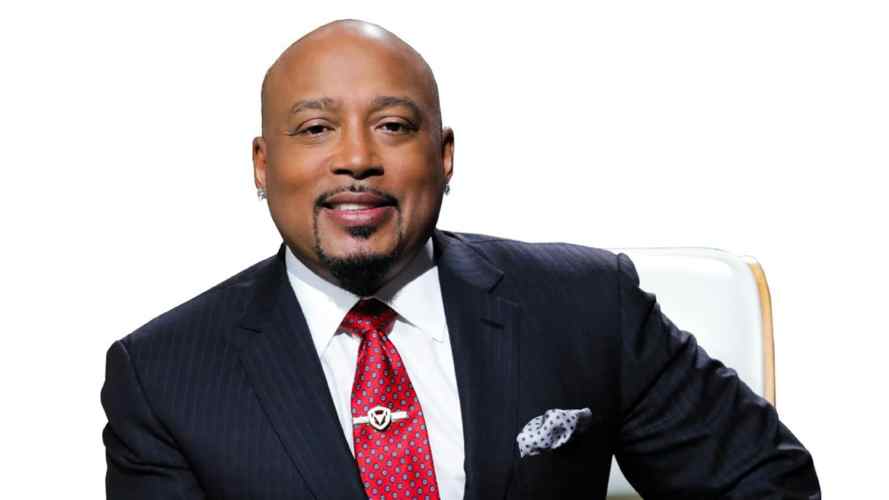I had the pleasure of starting the new year by talking to Daymond John about his advice for small businesses in 2021. John is founder and CEO of FUBU, one of the most iconic lifestyle brands of our time, which he grew from scratch into a $6 billion empire. He’s perhaps even better known these days for being one of the co-stars of the hit ABC show, “Shark Tank.”
In my role leading our small business product at Salesforce, I was grateful to sit down with John to learn from his three-plus decades in the business world.
Here I share a few highlights of the conversation, namely his insights on knowing your why, setting goals, and the importance of understanding what you don’t know about business. Hear more of John’s advice for small business owners and leaders.
You’ve thrived over the last three decades in a fast-moving industry, morphing and adapting in a very competitive world. What lessons can people take from your experiences as they face big change — maybe for the first time — in their own businesses?
John: I know my why. I get very, very deep into my why. On the first of the year — I do it every year — I write my obituary, and I write two versions. I write one as a person that loved me. And I write the other as a person who felt I could have done more in the world, and that I let them down. I write those obituaries and reflect on how I can be the person that really delivered.
I know, in any industry I’ve been in, that I’ve had to educate myself about what’s going on in the industry. How am I going to go about doing it? Whom do I need to help me along this journey — and how can I assist them? Then I take affordable steps and I fail. I also write goals and have goal-setting techniques: I read 10 goals before I go to bed every night and the same 10 when I wake up in the morning.
That creates my North Star, my compass. I read them before I go to bed because science has said that over 70% of the things you dream about are either what you fear is going to happen to you or what you hope is going to happen to you. So I want those goals to be the last thing I think about. I read them in the morning because I want to take one action towards it.
How do you set those goals?
John: I set them for every six months because I never hit them. If I say I’m going to make this amount of money, I make that amount and I reset it. And for the goals that are two years, five years, and 10 years, you have to visualize yourself in the goal.
Here’s an example of a five-year goal: If you said you wanted to move someplace and get a house in five years, you have to close your eyes as you think about the home. Is it Colonial, is it modern? Is it a glass doorknob, is it a brass doorknob? When you open the door, is it a winding staircase or is it an open room and you see in the backyard? Do you hear your kids running down the stairs saying, “Mommy and Daddy, you’re home?” You have to visualize yourself there.
The reason you set goals is you’re trying to take over, in your mind, the other goals other people are setting for you. If you’re not in control of what you’re thinking, you’re going to have other people say, “You can’t make $10 million in sales. You can’t get that education. You’re going to embarrass yourself. You’re going to embarrass us.” You become what you think about most of the time.
Can you share an example of a short-term goal?
John: Most of my goals are from health to faith to family to work. But I’m going to give you one I never hit and it’s very clear. I’m going to get down to 175 pounds by June 1. Here’s how I’m going to do that: I’m going to lose a pound and a half a week by drinking 10 bottles of water, walking over 10,000 steps, substituting one of my meals with a green drink, and not eating fried foods and cutting out meats and not eating after 6 p.m, except for fruit. And I’m also going to do weight training three days a week because muscle eats up more than fat.
And in return for getting down to 175 pounds? It goes back to your why. I’m going to live longer, I’m going to stay cancer free, and I’m going to walk my three little beautiful girls down the aisle. I look at the target. I can imagine myself at that target. That’s how you set your goals.
What advice do you have for small business leaders hoping to appeal to an investor? When you’re on “Shark Tank,” how do you make that call to invest or not invest?
John: Number one, I want to hear your story and I want to hear how you not only have succeeded, but I want to hear about your failures and how you had the resilience and the passion to push through. I want to hear your inventory, that you know what you know and what you don’t know.
Listen, every business owner can’t know everything. I was a designer. You think I understood, at the same time, manufacturing, warehousing, clearing quotes from China, marketing, accounting, CRM? You can’t know everything. So I want to know, do you know your shortcomings and where you know you need help?
I want to know who your customer is. A lot of the time, people on “Shark Tank” say, “Well, our customer is everybody.” No, it is not. And if you don’t know your customer, then you are looking for me to give you money for tuition.
Last but not least, I’ve got to like you. If I don’t like you, I will buy one of your sponges. I don’t have to buy the company.




























